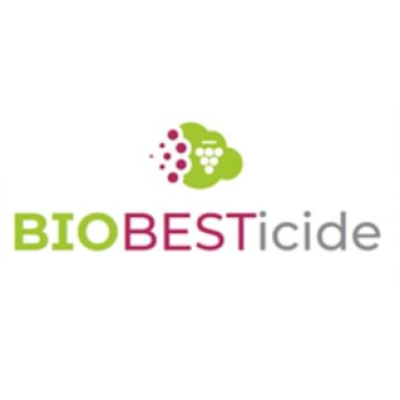
BIOBESTicide
BIO-Based pESTicides production for sustainable agriculture management plan

BIO-Based pESTicides production for sustainable agriculture management plan
In order to meet growing demand, modern farming needs to be both productive and reliable. Among a range of measures, this means ensuring that it is protected against pests. However, growing public concern over the health and environmental impact of chemical pesticides has seen their widespread use re-examined and re-evaluated. As a result, many previously common pesticides are now banned, and new agents face much stricter hurdles to reach the market.
These changing attitudes to chemical pesticides have led to increasing interest in the so-called ‘biocontrol agents’ (BCA) to provide alternative solutions. These rely on natural enemies to the pests, such as parasitism, predation and other mechanisms for control. The market for such solutions is growing rapidly as a result. However, BCAs are not currently developed for all crops. This is currently the case for Grapevine Trunk Diseases, which are a major cause of the destruction of vineyards. Vineyards, for both edible grapes and wine production, are a major crop in southern Europe and thus in need of a BCA-based solution.
The BIOBESTicide project will validate and demonstrate the production of an effective and cost-efficient BCA. This will be based on the properties of the fungus Pythium oligandrum, strain I-5180, and its capacity to increase natural plant defences. The fungus will be cultivated on beet pulp and beet molasses, a by-product of sugar production. The project will scale up production of the agent to 10 tonnes per year and test its efficiency in a range of geographical vineyard settings.
The overarching objective of the BIOBESTicide project is to develop a biopesticide capable of providing Europe’s viticulture against Grapevine Trunk Diseases. This will offer an alternative to chemical pesticides against this potentially devastating disease. Within this, the BIOBESTicide project has a number of specific objectives. These are to:
By achieving its overall objectives, the BIOBESTicide project will provide a much-needed alternative to chemical pesticides for the European viticulture industry. In addition, it will also make contributions to specific BBI JU KPIs through:
In addition, the BIOBESTicide project will have a positive environmental impact. By offering a bio-based alternative, it will help reduce the levels of pesticides. These can persist in soil, leach to groundwater and surface water and contaminate the wider environment. In addition, it will help to prevent the widespread loss of vines from Grapevine Trunk Diseases, retaining them as part of local ecosystems.